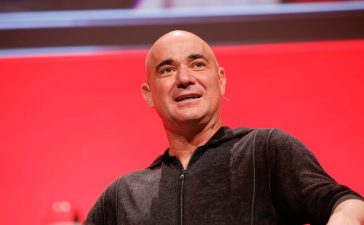The Evening Standard has lost a further £16m and said it was reliant on extra funds from its owner, Evgeny Lebedev, to continue publishing.
The former GQ boss Dylan Jones recently became the editor tasked with reviving the fortunes of the free London newspaper amid questions over its long-term sustainability.
Revenues at the Evening Standard increased to £31m in 2022, up from £28m in 2021, according to accounts filed at Companies House. But losses grew from £14.4m to £16.4m. This took cumulative losses to £84.5m in the last six years, with the company now carrying twice its annual revenue in debt.
The business received additional shareholder loans worth £16.8m in recent months, with Lebedev pledging to maintain funding for at least 12 months.
The company’s auditors said it had “adequate resources to continue in operational existence for the foreseeable future” but warned that “should the financial support be discontinued the going concern basis may not be valid”.
The business model of printing hundreds of thousands of free newspapers aimed at commuters has been hit hard, and there is little sign it will revive any time soon.
Print advertising revenue is collapsing, many office workers are working from home, and 4G phone signal is starting to arrive on the London underground. Meanwhile, the cost of physical paper has skyrocketed, forcing the Evening Standard to reduce the number of copies and pages it prints in recent years.
Lebedev was given a seat in the House of Lords by the former prime minister Boris Johnson, despite concerns from high-level government officials about his links to Russia. In recent weeks Lebedev has used the Evening Standard to launch a campaign against “cancel culture”, declaring he has “donned my body armour” to defend freedom of speech.
Lebedev, who also owns the online-only Independent, bought the Evening Standard with his oligarch father, Alexander, in 2009. Alexander Lebedev, who is no longer involved in the titles, was placed under Canadian sanctions last year after Ottawa accused him of “directly enabling” the Russian war in Ukraine.
The other major shareholder in the Evening Standard’s parent company is a bank with close links to the Saudi Arabian government.
The Evening Standard said it would double-down on building a digital-first newsroom, but added that online revenues were performing “poorly” and its web audience was stagnating.
Revenue from the company’s events business almost halved in 2022. This was despite it being the first year that in-person events could be held since the start of the Covid pandemic.
Staff numbers at the newspaper have been slashed in recent years, with the journalists who remained having to deal with an extended period without a permanent editor.
The entire British media industry is suffering badly, with advertising revenue collapsing as companies cut back on marketing spending because of the sluggish economy and cost of living crisis.












